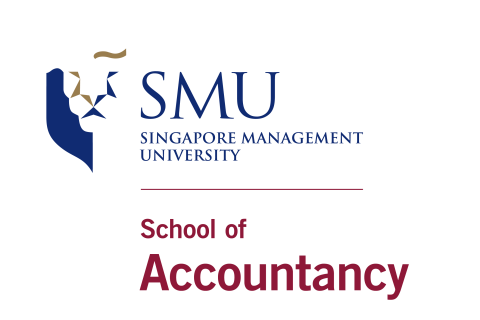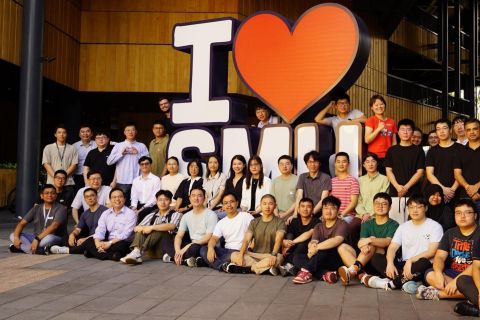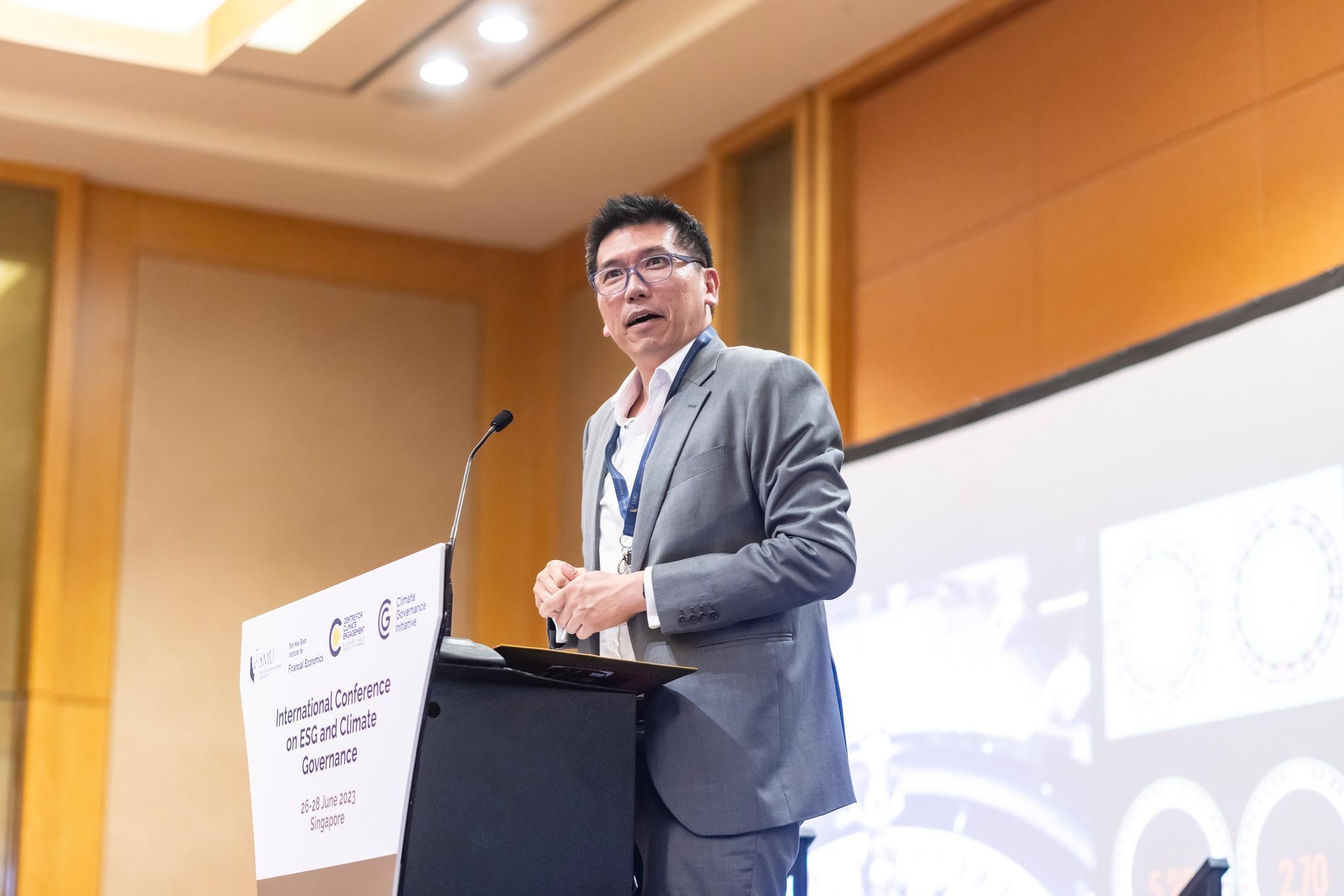
Winston Chow, Associate Professor of Urban Climate and Lee Kong Chian Research Fellow at SMU urged business leaders to gamble on the right side of climate change at the inaugural International Conference on ESG and Climate Governance.
As the world runs out of time to cut emissions significantly to limit the catastrophic impact of climate change, and as extreme weather becomes the new normal, business leaders must invest in climate adaptation to sustain stakeholder trust.
This is the message from Winston Chow, Associate Professor of Urban Climate and Lee Kong Chian Research Fellow at Singapore Management University (SMU). For businesses to continue operating while floods, heatwaves, and typhoons disrupt lives and damage critical infrastructure, is like gambling with the odds against one’s business, he stressed.
He spoke at the inaugural International Conference on ESG and Climate Governance, to a rapt audience comprising academic experts, practitioners and board directors from 23 countries, at Marina Bay Sands, on 26 June 2023.
The three-day, by-invitation conference was a global collaboration between the Centre for Climate Engagement and Climate Governance Initiative, based at Hughes Hall, University of Cambridge, and SMU’s Sim Kee Boon Institute for Financial Economics (SKBI), supported by the Singapore Green Finance Centre (SGFC).
Overcoming barriers to governance
Assoc Prof Chow spoke from his perspective as part of a global academic team commissioned by the United Nations to assess 90,000 studies on climate change over the past five years. He is Singapore’s nominee to the Intergovernmental Panel on Climate Change (IPCC) Bureau of the United Nations as the developing country Co-Chair for IPCC Working Group (WG) II on Impacts, Adaptation and Vulnerability for the upcoming Seventh Assessment Report (AR7) Cycle, commencing in July 2023.
The overwhelming outcome of the conference discussions was the need to rapidly raise board-level understanding of the business risks and opportunities in environmental, social and governance issues. The conference noted there is no one-size fits all approach, particularly in this part of the world. The drivers, approaches, and climate action used in western countries will not be effective in all parts of Asia-Pacific.
“Knowing is half the battle,” Prof Chow said, borrowing a quote from the GI Joe cartoons he grew up watching. He urged business leaders to learn about the gaps in climate adaptation and mitigation finance, to enable climate adaptation and mitigation through ‘shrewd investments’, and to overcome barriers in the boardroom and outside that stop successful ESG from being implemented. Different markets in different parts of the world require different strategies, he said.
“The climate roulette wheel is unforgiving, but if you are aware of opportunities that can arise in ESG and climate action as reds become black (and vice versa), you can hopefully take advantage of these opportunities to the benefit of your company and the community,” he said.
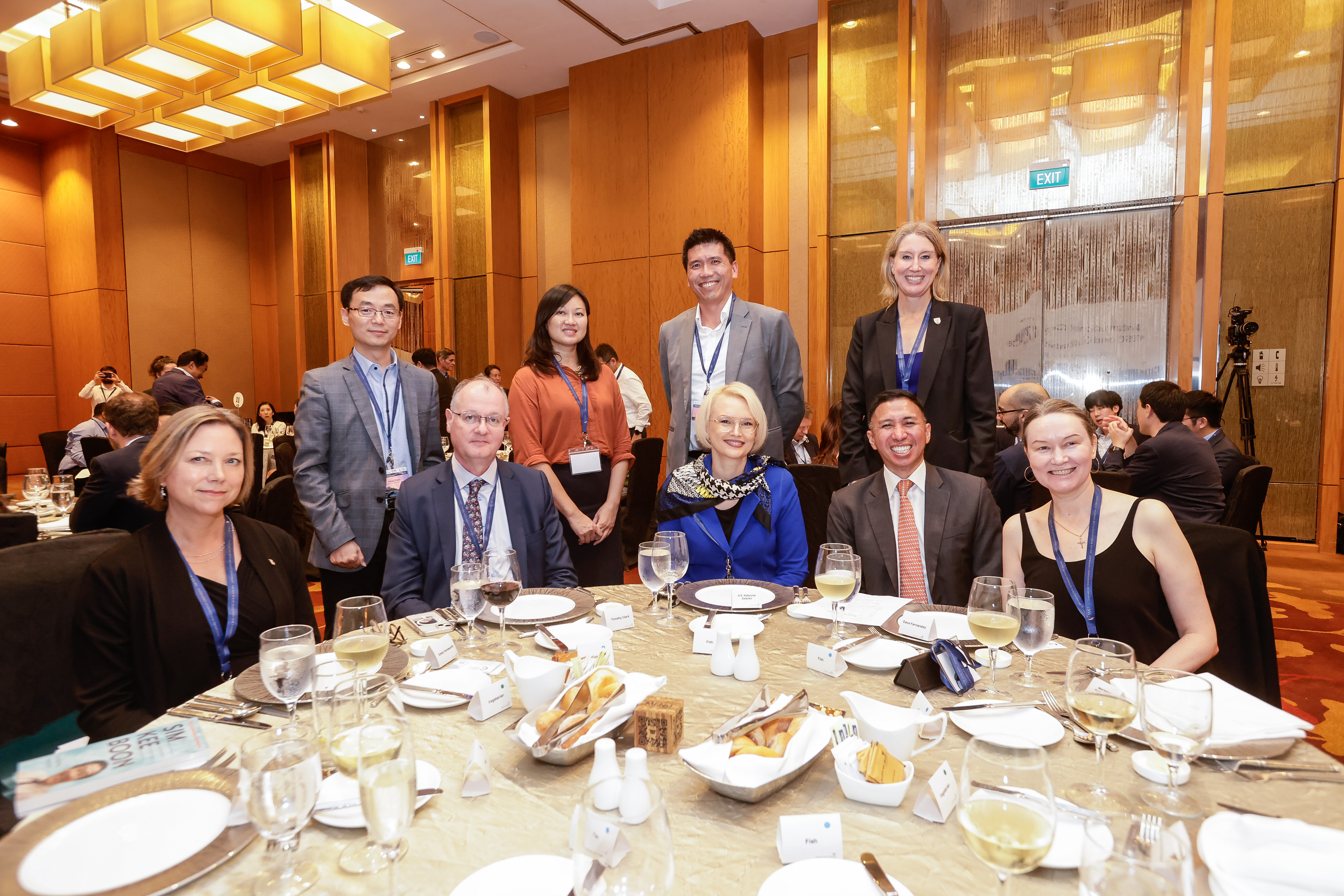
(L-R standing): Prof Zhang Hong (SKBI Director), Dr Theresa Wong (National Resources Officer, Food and Agriculture Organization of the United Nations); Assoc Prof Winston Chow (Associate Professor of Urban Climate and Lee Kong Chian Research Fellow at SMU); Dr Eldrid Herrington (Academic Community Manager, Centre for Climate Engagement, Hughes Hall, University of Cambridge). (L-R sitting) Ms Emily Farnworth (Director, Centre for Climate Engagement, Hughes Hall, University of Cambridge), Prof Timothy Clark (Provost, SMU), H.E. Kateryna Zelenko (Ambassador of Ukraine to Singapore), Prof Dave Fernandez (former SKBI Director (2018-2023) and Founding Co-Director of the Singapore Green Finance Centre at SMU) and Dr Marianna Kozintseva (Founder/CEO, Turning Point Macro, Visiting Faculty, SKBI).
Assoc Prof Chow referenced a well-known Harvard Business School study on the G.I. Joe fallacy ‘knowing about a bias is enough to overcome it.’ The study showed that knowing about biases does not translate into action easily. One of the reasons is that people get distracted during the decision-making process – and do not take action.
Exploiting knowledge gaps and inertia
To show his bemused audience how to gamble on the right side of climate change, Assoc Prof Chow told the story of Joseph Jagger, an engineer who went to the Monte Carlo Casino in 1881 to exploit the biases of roulette wheels.

The climate roulette wheel is ‘unforgiving’ but fortune favours the bold who knows how to take advantage of the knowledge gaps and inertia in investing in climate change adaptation.
Jagger studied six roulette wheels at the casino and discovered one had a noticeable bias, and he used this knowledge to win significantly – and legally – at roulette. He eventually bought 30 houses as real estate investment for his family, turning advantage of these opportunities into real assets for his descendants. Similarly, he holed that informed businesses can take advantage of climate knowledge shared in the conference to leave a better world for their descendants.
The next speaker was the conference’s guest-of-honour, Her Excellency Kateryna Zelenko, Ambassador of Ukraine to Singapore. Her speech, ‘Geopolitics of Climate Change and the Transition to Net Zero – A Ukraine Perspective’ provided a sobering view of the accelerated environmental damage to Ukraine due to shelling, mining, bombing and threats to a key nuclear facility due to the ongoing war in Ukraine.
She said Ukraine plans to build back from the war with sustainability at the core of its recovery process despite the devastating impacts. This commitment has prompted Ukrainians to innovate with the creation of self-powering schools through a project called ‘100 Solar Schools,’ she shared.
Dr Marianna Kozintseva, a Visiting Faculty member of SKBI, spoke on how non-executive directors can de-risk the ESG of their companies by verifying the company’s exposure to the war in Ukraine.
In addition, Mr Loh Boon Chye, CEO of the Singapore Exchange (SGX) stressed the duty of board directors in safeguarding the stability of the organisations they steward in an insightful keynote. Directors need to increase their climate-related knowledge, he also said, adding they should integrate ESG processes into decision-making.
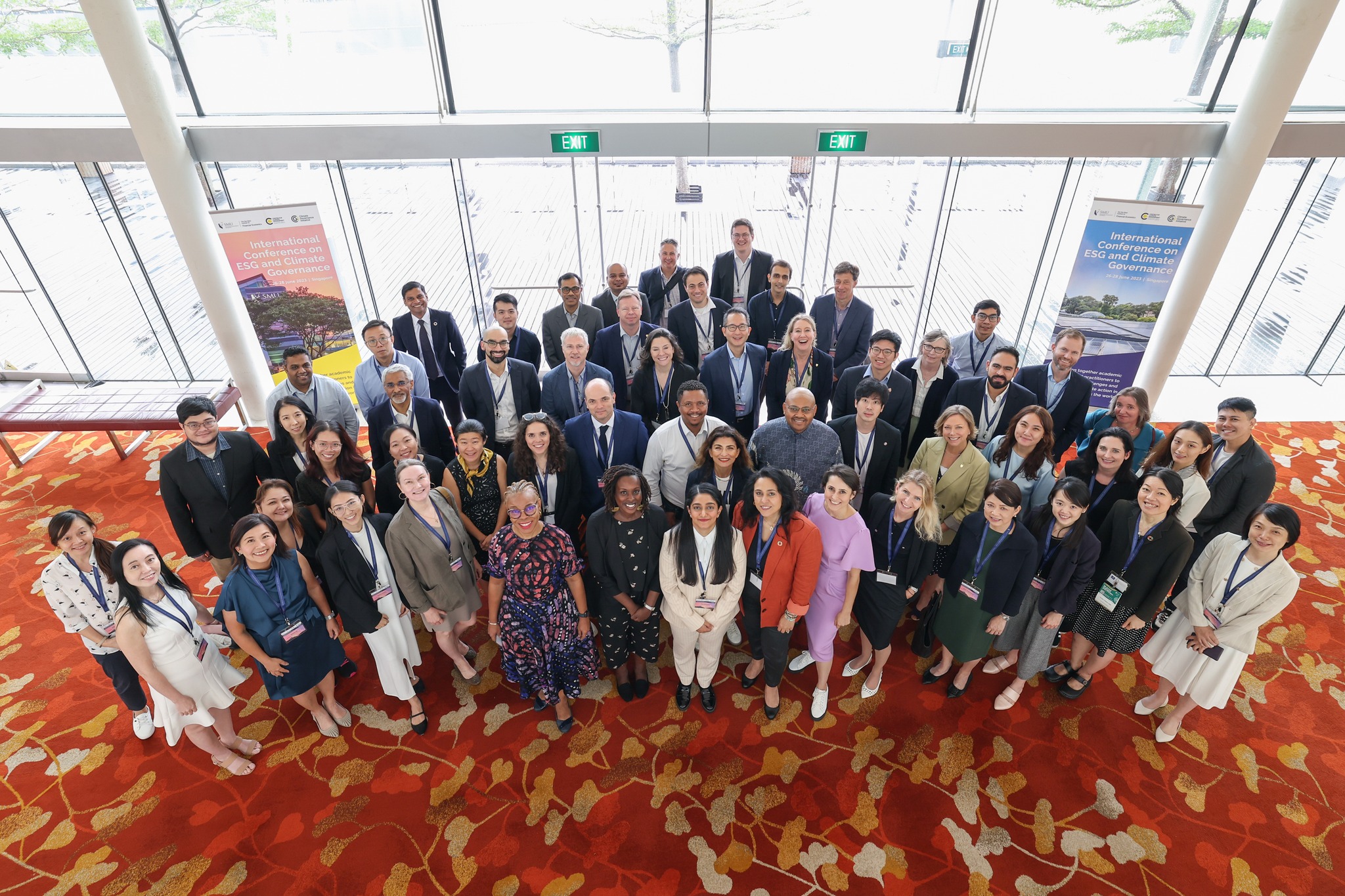
Attendees from six continents attending the inaugural International Conference on ESG and Climate Governance.
A live-streamed webinar discussing the key actions from the conference on 28 June was attended by over 380 participants. Academics and practitioners, namely Prof Simon Learmount (Professor of Corporate Governance, University of Cambridge), Ms Wong Su-Yen (Chair of the Governing Council, Singapore Institute of Directors (SID)), Mr Shai Ganu (Global Head of Executive Compensation and Board Advisory at WTW; Chair of SID’s ESG Committee), and the moderator, Ms Emily Farnworth, (Director, Centre for Climate Engagement, Hughes Hall, University of Cambridge) had a lively session sharing key takeaways for board directors driving climate action.
Here is a summary report of the conference, for full speeches by delegates, please visit the conference page on the SKBI website. Please visit SKBI’s Facebook page for more pictures of the event.
Originally published at https://news.smu.edu.sg/news/2023/07/20/climate-change-unforgiving-invest-climate-adaptation-opportunities-gain-1
Back to Research@SMU August 2023 Issue
See More News
Want to see more of SMU Research?
Sign up for Research@SMU e-newslettter to know more about our research and research-related events!
If you would like to remove yourself from all our mailing list, please visit https://eservices.smu.edu.sg/internet/DNC/Default.aspx
